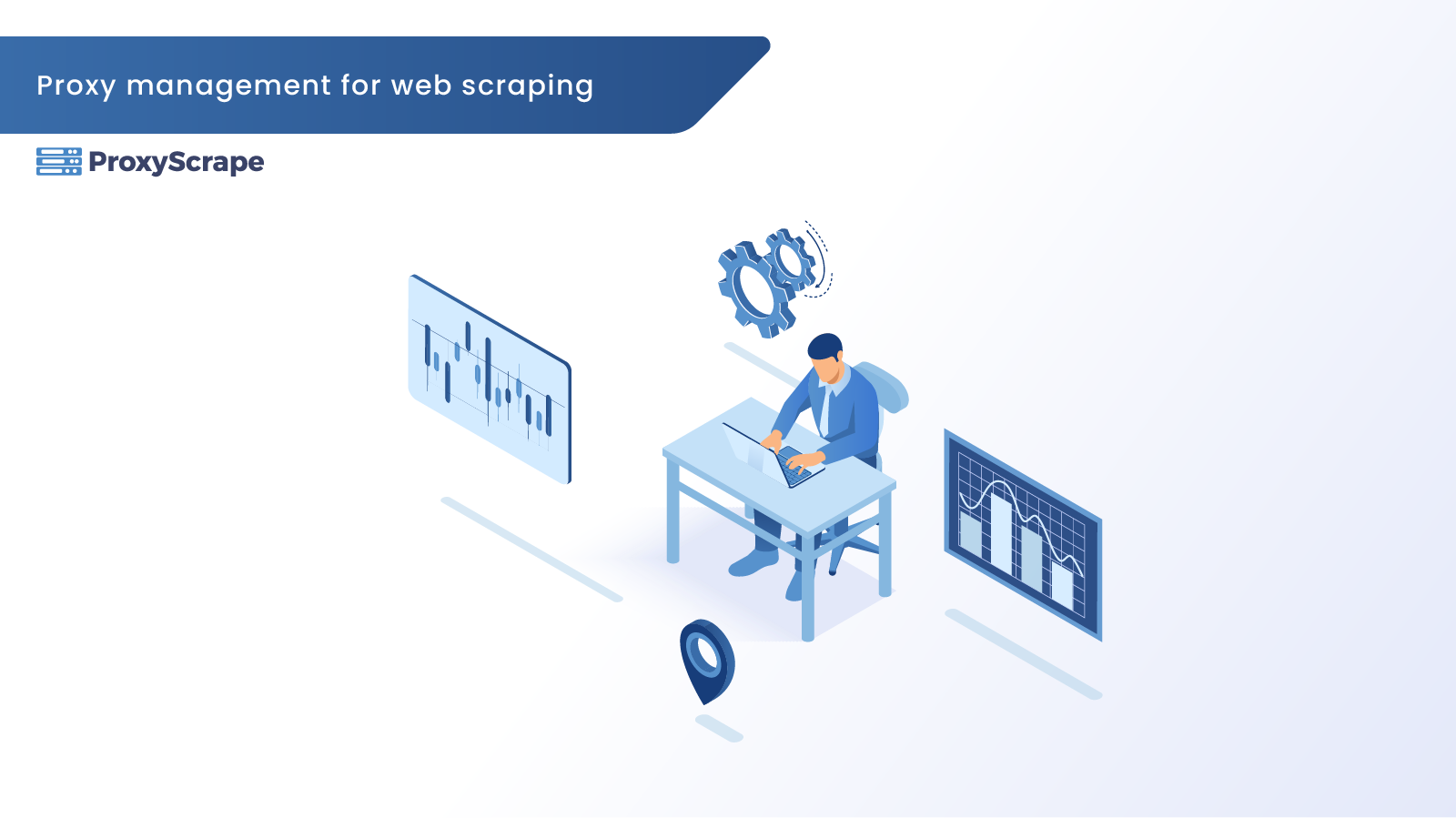
To get an idea of what a proxy is, you need to understand what an IP address is. It is a unique address associated with every device that connects to the Internet Protocol network like the Internet. For instance, 123.123.123.123 is an example of an IP address. The numbers can range from 0 to 255
To get an idea of what a proxy is, you need to understand what an IP address is. It is a unique address associated with every device that connects to the Internet Protocol network like the Internet. For instance, 123.123.123.123 is an example of an IP address. The numbers can range from 0 to 255 (i-e, from 0.0.0.0 to 255.255.255.255). These numbers are not random; rather, they are mathematically generated and allocated by IANA (Internet Assigned Numbers Authority).
You can consider a proxy as an intermediate connection point between the user and the target website. Each proxy server has its IP address, so when a user requests via a proxy to access a website, the website sends the data to the proxy server IP that forwards it to the user.
- Proxies hide the identity of web scrapers and make their traffic look like regular user traffic.
- Proxies provide additional security to websites and balance the internet traffic.
- Proxies protect web users’ data or help access websites blocked by a country’s censorship mechanism.
Why Do You Need To Use A Proxy Server?
It’s an inefficient practice to scrape the web using a single proxy as it limits the number of concurrent requests and the geo-targeting options. If your proxy gets blocked, you can’t use it again to scrape the same website. The size of the proxy pool may differ based on the following aspects.
- Do you use Residential, Datacenter, or Mobile IPs?
- Which features do you use for your proxy management system?
- How many requests do you send? A large proxy pool is required if you send too many requests.
- Do you use public, shared, or private proxies?
- What kind of websites do you target? You need a large proxy pool to counter the anti-bot features of larger websites.
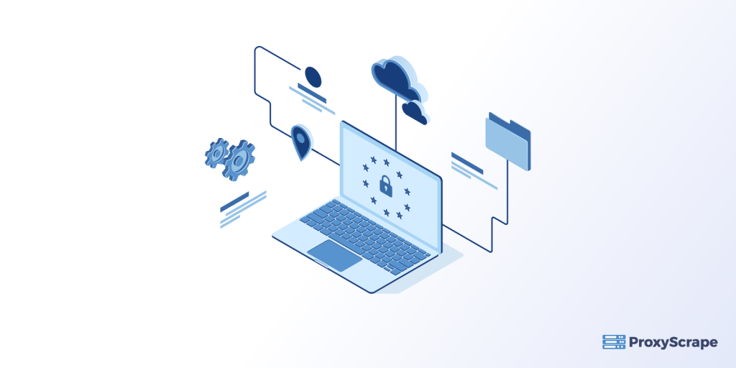
Given below are some benefits of using proxies for web scraping.
Geolocation – Sometimes, websites may have content accessible from a particular geographical location. Therefore, you need to use a specific proxy set for getting the results.
Avoiding IP Bans – Business websites limit the crawl rate to stop scrapers from making many requests. They use a sufficient pool of proxies for scraping to get past rate limits on the target website by sending requests from different IP addresses.
High Volume Scraping – You can not programmatically determine if the website is scraped. Web scrapers are at the risk of being detected and banned when they access the same website too quickly or at specific times every day. The proxies allow more concurrent sessions to the same or different websites and provide high anonymity.
Retry – When your request encounters a technical problem or an error, you can retry the request using a particular set of proxies. If a specific proxy pool doesn’t work, you can use another proxy set.
Increased Security – The proxy server hides the user’s machine IP address from the target website and adds an extra layer of privacy. Thus, the user can send multiple requests to the target website without getting blocked or banned by the website owner.
How To Setup Proxy Management?
Below are the aspects of setting up proxy management.
- Using software to route requests to different, forward proxies
- Forward proxies making requests from target websites
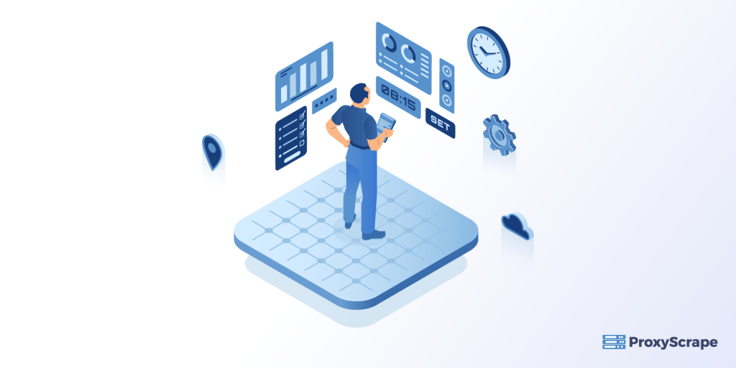
In-house and outsourcing proxy
In-house proxies provide complete control to the involved engineers and ensure data privacy. But it takes a lot of time to build an in-house proxy. Thus, you need an experienced engineering team for building and maintaining the proxy solution. Therefore, many businesses prefer to use off-the-shelf proxy solutions.
Web scraping proxy
Different web scraping proxies depend on the IP type. The multiple types of IP proxies are:
Datacenter proxies
These Internet protocols come from the cloud servers and possess the same subnet block range as the datacenter. Thus, they can be easily detected and are not affiliated with an ISP (Internet Service Provider). These proxies are the most commonly used because they are the cheapest to buy compared to other proxies. They can function adequately with the proper proxy management.
Residential proxies
Residential IPs are the internet protocols of a person’s network. They are more expensive than the datacenter IPs, so it can be challenging to acquire them. The datacenter proxies achieve the same results and do not violate someone’s property. Though they are cost-efficient, they have a problem accessing the geo-restricted content.
On the contrary, the residential proxies are less likely to get blocked by the websites you scrape. The residential IPs are the legitimate IP addresses coming from an Internet Service Provider and can be effectively used to access the geo-restricted content worldwide.
Mobile proxies
The mobile proxies are pretty expensive and even more challenging to obtain. Usually, it is not recommended to use mobile proxies unless you need to scrape results to show to the mobile users exclusively.
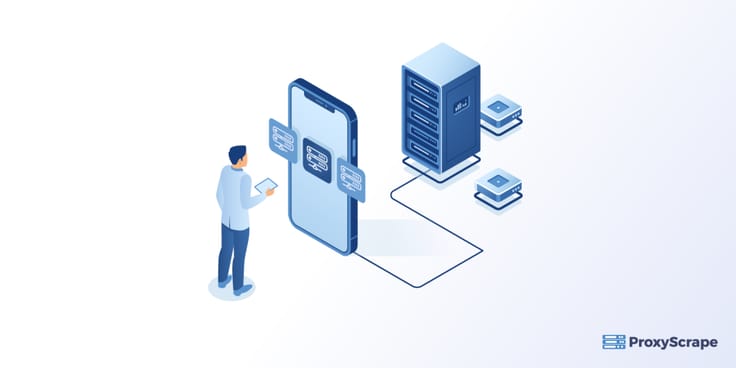
Does API make proxy management easier?
It can be pretty time-consuming to manage a proxy pool on your own. What about using an API?
If you use an API, you do not need to worry about:
- Viruses affecting your machine
- Anti-bots
- Size of the proxy pool and its compositions
A well-developed API can manage features like:
- Geolocation configuration
- Proxy rotation
- Avoiding browser fingerprinting
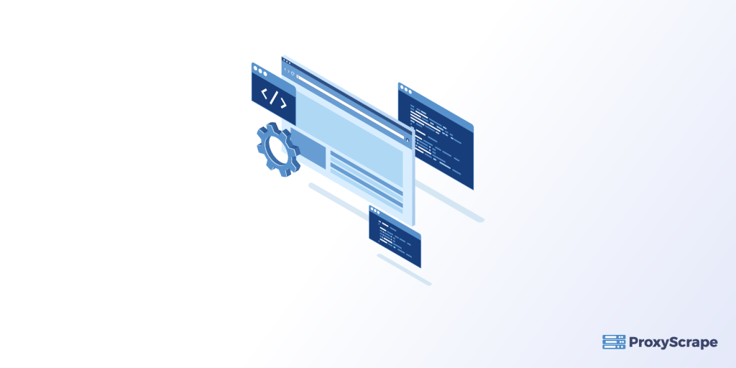
You may need to invest in a monthly subscription to use the services of an API. But it saves money and time than doing it yourself. It would be a more efficient approach to use a pre-built API. Some APIs can also do web scraping for you apart from managing proxies.
Conclusion
So far, we discussed that a proxy server is a machine that houses proxy IP addresses. You connect to the proxy server first when you want to use a proxy. It hides your original IP address and displays a different one to the target website. The website then sends a response to the proxy server that sends it back to you. It is an efficient practice to use a pool of proxies for web scraping so you can concurrently make several requests without getting blocked. You can either use residential or datacenter proxies, depending on your requirement. You can manage your proxy pool by using an API to control features like proxy rotation and geolocation configuration.